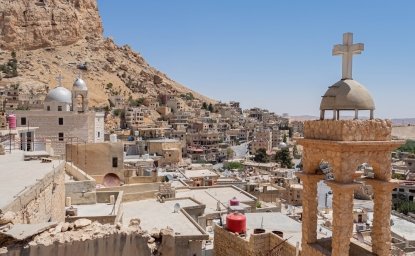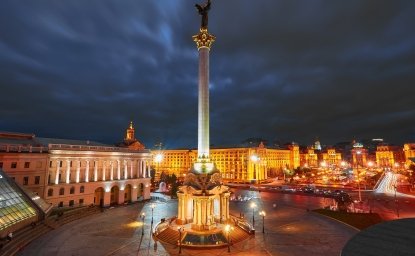At least 60 percent of Egyptians prefer democracy to any other kind of government, according to new poll by the Pew Research Global Attitudes Project. Results suggest that Egyptians want Islam to play a major role in their democracy. About 58 percent of Egyptians say laws should strictly follow Koranic teachings while 28 percent contend that laws should reflect Islamic values and principles ― but not strictly follow the Koran. Only 11 percent do not think the Quran should influence national laws.
Egypt’s largest Islamic movement, the Muslim Brotherhood, and its political arm, the Freedom and Justice Party, are both viewed more positively than the secular political opposition. About 63 percent of Egyptians have a positive view of the Brotherhood, down from 70 percent in 2012 and 75 percent in 2011. About 45 percent of Egyptians have favorable views of the National Salvation Front, a largely secular coalition of opposition forces. Less than half of those surveyed have a positive view of coalition leaders Hamdeen Sabahior and Mohamed ElBaradei. The following are excerpts, followed by a link to the full report.
 Egyptians clearly want their legal and political systems to be shaped by Islam. Most say laws should strictly adhere to the Quran, and a majority of Egyptians think religious leaders should have at least some influence in political matters...
Egyptians clearly want their legal and political systems to be shaped by Islam. Most say laws should strictly adhere to the Quran, and a majority of Egyptians think religious leaders should have at least some influence in political matters...
 When asked about the role of religion in politics, nearly seven-in-ten Egyptians say religious leaders should have a large influence (27%) or some influence (42%) in political matters. About one-in-five (21%) say religious leaders should not have very much influence in political affairs, while only 8% think religious figures should have no influence at all in politics.
When asked about the role of religion in politics, nearly seven-in-ten Egyptians say religious leaders should have a large influence (27%) or some influence (42%) in political matters. About one-in-five (21%) say religious leaders should not have very much influence in political affairs, while only 8% think religious figures should have no influence at all in politics.
Support for religious leaders having at least some influence in political matters is stronger among Egyptians 50 years of age and older (76%) than among those under 30 years of age (66%)...
Egyptians are divided about how much the current government is doing to protect of the religious freedom of non-Muslims in the country. Roughly four-in-ten (39%) say the present administration is doing too little to protect the rights of religious minorities, such as Coptic Christians, while a nearly identical proportion (38%) says the government is doing the right amount. Few Egyptians think the current regime is doing too much (13%) to ensure that religious minorities can freely practice their faith...
 Roughly half of Egyptians (53%) have a favorable view of President Morsi, with 43% holding an unfavorable view of Egypt’s first post-revolution elected leader. This tracks closely with the 51.73% who voted for him in the presidential runoff election of June 2012.
Roughly half of Egyptians (53%) have a favorable view of President Morsi, with 43% holding an unfavorable view of Egypt’s first post-revolution elected leader. This tracks closely with the 51.73% who voted for him in the presidential runoff election of June 2012.
Roughly six-in-ten Egyptians (63%) have a favorable opinion of the Muslim Brotherhood, while 36% express a negative view. This makes the Muslim Brotherhood the most popular of the political organizations tested, although positive evaluations of the Islamist group have fallen 12 percentage points since 2011. The ruling FJP, which was founded by the Muslim Brotherhood but remains nominally independent, is also seen favorably, with 52% of Egyptians holding a positive view of the party.
 Evaluations of the secular NSF are more mixed; 45% of Egyptians have a positive opinion of the liberal coalition headed by Mohamed ElBaradei, Hamdeen Sabahi and Amr Moussa, while 52% have a negative view. The Salafist al-Nour Party is perceived negatively by the Egyptian people, with only four-in-ten expressing sympathy with the party.
Evaluations of the secular NSF are more mixed; 45% of Egyptians have a positive opinion of the liberal coalition headed by Mohamed ElBaradei, Hamdeen Sabahi and Amr Moussa, while 52% have a negative view. The Salafist al-Nour Party is perceived negatively by the Egyptian people, with only four-in-ten expressing sympathy with the party.
Click here for the full report.




